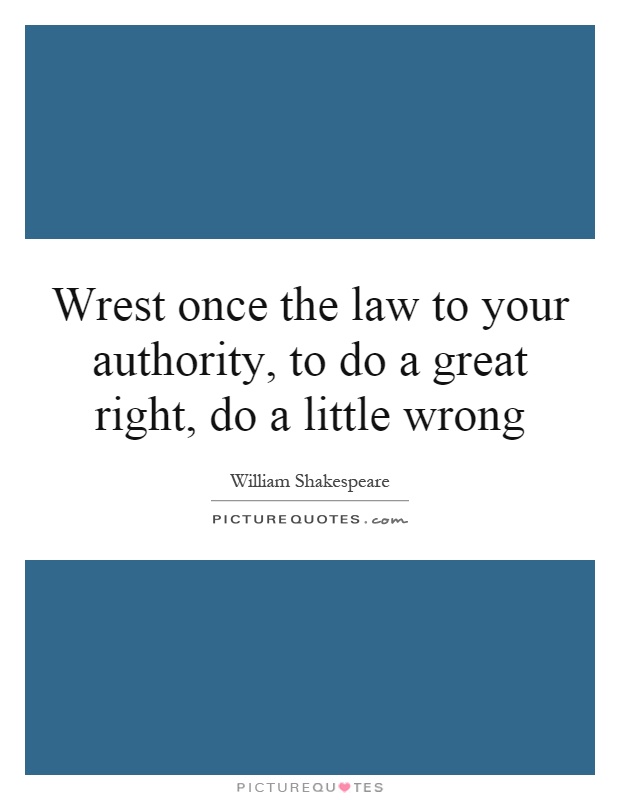Wrest once the law to your authority, to do a great right, do a little wrong

Wrest once the law to your authority, to do a great right, do a little wrong
In William Shakespeare's play "The Merchant of Venice," the character Portia famously declares, "Wrest once the law to your authority, to do a great right, do a little wrong." This line encapsulates the complex moral dilemmas faced by the characters in the play, as well as the broader themes of justice, mercy, and the limitations of the law.The character of Portia is a wealthy heiress who disguises herself as a male lawyer in order to save her husband's friend, Antonio, from the cruel and vengeful Shylock. Shylock, a Jewish moneylender, demands a pound of Antonio's flesh as payment for a loan that Antonio is unable to repay. Portia argues that Shylock is entitled to his pound of flesh according to the strict letter of the law, but she also appeals to the court's sense of mercy and justice in order to save Antonio's life.
Portia's declaration that one must "wrest once the law to your authority" suggests that sometimes it is necessary to bend or break the rules in order to achieve a greater good. In this case, the greater good is saving Antonio's life and preventing a grave injustice from taking place. By using her wit, intelligence, and legal knowledge to outsmart Shylock and manipulate the court, Portia is able to do what is morally right, even if it means doing a little wrong in the process.
The theme of justice versus mercy is a central one in "The Merchant of Venice," and Shakespeare explores the complexities of this theme through the character of Portia. While the law is important and must be upheld, there are times when it is necessary to go beyond the letter of the law in order to achieve true justice. Portia's actions demonstrate that sometimes the ends justify the means, and that it is possible to do a little wrong in the service of a greater right.
Overall, Portia's declaration in "The Merchant of Venice" reflects Shakespeare's nuanced understanding of morality, justice, and the limitations of the law. It serves as a reminder that sometimes it is necessary to challenge authority and break the rules in order to achieve a greater good.












 Friendship Quotes
Friendship Quotes Love Quotes
Love Quotes Life Quotes
Life Quotes Funny Quotes
Funny Quotes Motivational Quotes
Motivational Quotes Inspirational Quotes
Inspirational Quotes